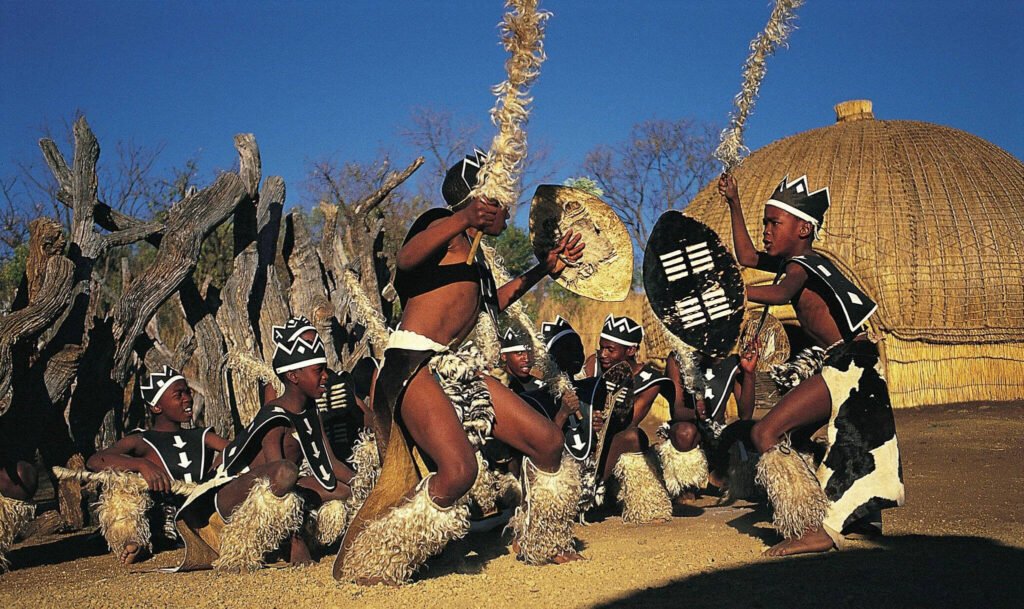The Zulu people, South Africa’s largest ethnic group, carry a rich history rooted in East African origins. Migrating south during the great Bantu migration, they emerged as a formidable kingdom under the leadership of Shaka in the early 19th century. Shaka’s military innovations and leadership expanded the Zulu empire, leaving a legacy that remains central to South African history.

While modern Zulu communities embrace contemporary lifestyles, they maintain strong ties to their ancestral and cultural roots. Traditional attire, reserved for special occasions, reflects this connection. Central to Zulu philosophy is the concept of Ubuntu, a principle emphasizing community, interconnectedness, and the idea that humanity is defined through relationships.

Religion among the Zulu blends Christian beliefs with traditional practices. At its core is Unkulunkulu, the creator, who is regarded as a distant deity. The Zulu people also revere amadlozi—ancestral spirits believed to influence daily life. Significant life events like births and marriages are marked by sacrificial offerings to these spirits, ensuring a harmonious connection between the living and their ancestors.

Renowned for their artistry, the Zulu excel in pottery, weaving, and beadwork. Zulu beadwork, in particular, is celebrated for its intricate designs and symbolic meanings. Patterns and colors communicate identity and social status, with specific shapes representing men, women, or marital status. Colors convey dual meanings; for instance, red symbolizes both love and anger, while blue denotes faithfulness and hostility. This unique craftsmanship has become a defining feature of Zulu culture, with beadwork widely available in cultural villages and curio shops across South Africa.

To experience Zulu culture firsthand, visitors can explore cultural villages like Shakaland in KwaZulu-Natal. These immersive spaces offer a glimpse into traditional life, showcasing activities such as pottery making, beadwork, traditional dances, and even the brewing of traditional beer.



